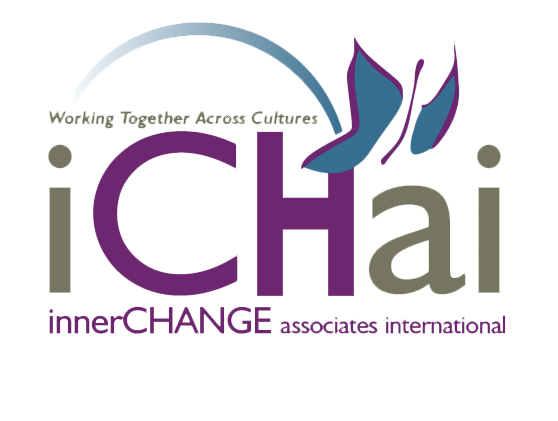Since 1990, iCHai has tailored unique programs in 10 countries and with multinational organizations. iCHai’s team of professional consulting associates work with organizations to develop and implement strategic cultural competence plans, conduct training seminars, and provide intercultural assessments and support services.
A few of our customized training programs we have offered include:
Change Management Skills for Diverse Workplaces
Purpose:
The capacity to manage change is the key to succeeding in our current and future organizational environment. It is both a set of skills, and an attitude that can be developed. The challenge for each of us is to become an active participant in our own change process. The purpose of this seminar is to provide an opportunity for the participants to develop the essential “managing change” skills which will support living and working more effectively in a world that will never stop changing.
Objectives:
- Understanding the process of change and its impact on work performance;
- Handling resistance to change;
- Communicating change effectively and managing its implementation.
Communicating Effectively in Multicultural Organizations
Purpose:
Every day organizations lose time, resources, and desirable employees and customers because they do not take cultural differences sufficiently into consideration. In addition, many organizations lose out on the competitive advantage they could acquire if they used the differences to create more innovative, complex solutions to their work-related problems. The seminar will give participants new ways of looking at and understanding their own and other cultures and will show how cultural conditioning affects different areas of work like organizational structure, strategy, decision-making, human resource management, and teamwork.
Objectives:
- Understand cultural differences and how this affects cross-cultural management practices;
- Communicate more effectively and clearly across cultures, both verbally and non-verbally;
- Build cross-cultural analytical skills to enhance communication, stimulate creative thinking, and develop stronger working teams.
Cross-Functional Team Building
Purpose:
This seminar presents essential team skills, demonstrating how these skills can directly contribute to organizational effectiveness and progress. Participants will understand how to bring ideas to life, how to encourage participation from other team members, how to avoid and deal with conflict and to lead more collaborative teams. By applying these team player and team leader skills the entire organization will be focused on maintaining a cooperative, creative, and highly productive team environment.
Objectives:
- Define a team and identify common elements in different kinds of teams;
- Explain what good teams do differently than ineffective teams;
- Explore how team player skills help get things done in a team meeting;
- Examine team player skills necessary to be an effective team member and team leader.
Cultural Competency in Healthcare Organizations
Purpose:
The importance of racial and ethnic disparities in health care delivery and outcomes in the United States has been increasingly recognized. Culturally and linguistically diverse groups and people of limited English proficiency generally experience less adequate access to healthcare and receive lower quality of care, poorer health status and outcomes have been the result historically. It makes good business sense for healthcare organizations and providers to undertake cultural competency quality improvement programs in the areas of linguistic competence, cultural competence and increased workforce diversity. There is a compelling and plausible business case for health care organizations to initiate cultural competency programs. This consulting/training service and seminar series will focus on how to create the cultural awareness of staff, management, and providers of the importance of a culturally competent workforce within the healthcare field.
Customer Service in the Multicultural Organization
Purpose:
This seminar is designed to provide customer service providers with the skills they need to deliver excellent service to external customers as well as internal customers. A target audience for this training will be employees who provide internal service; these are employees who provide services to other parts of the organization. It’s important to remember that anyone in an organization who deals with customers represents the organization and has the opportunity to provide service beyond expectations.
Objectives:
- To build awareness of the importance of excellent service to customers, the organization, and the service provider;
- To build skill and confidence to meet and, whenever possible, exceed the personal and practical needs of customers;
- To create understanding that excellent service requires thorough preparation, effective interactions, and timely follow-through activities;
- To build skills to better handle difficult, unexpected, or challenging customer service situations.
Effective Interviewing Skills for a Multicultural Workforce
Purpose:
Traditional “gut feeling” interviewing is often a poor predictor of good hires. “Gut feeling” interviewers tend to choose people they like, or people that are like themselves, or people who interview well, rather than the best candidate for the job. Using traditional interviewing the odds are that many new hires will not fully meet management’s performance expectations. This makes traditional interviewing high risk and potentially costly. Structured behavioral interviewing can dramatically raise your hiring success ratio! Better hires mean increased productivity, lower turnover, higher morale, and better quality and service for customers.
Objectives:
- Provides a systematic process;
- Ensures job-related questions are asked;
- Acquires relevant information to make a hiring decision;
- Provides objective data;
- Ensures a fair selection process;
- Ensures the best match between candidate and job;
- Results in shorter training time and lower turnover.
Gender and Diversity Issues in Organizations
Purpose:
This seminar presents strategies and skills to strengthen the organization’s ability to effectively promote gender equality in its own workforce and integrate gender considerations into its activities, corporate culture and policies.
Objectives:
- To build awareness of the importance of gender and diversity integration into the corporate culture;
- To increase sensitivity to unacceptable behavior in the workplace;
- To show employees how to communicate in a professional, fair manner;
- To show how complaints can be mediated;
- To show how gender and diversity issues affect planning, implementation, monitoring and evaluation of polices, programs, projects and services;
- To show how to increase effectiveness of operations by minimizing conflicts and loss of time and human resources through turn-over and demotivation;
- To show qualitative and quantitative information on the influence of gender and cultural diversity in workforce issues.
Intercultural Coaching for Decision Makers (ICDM)
Purpose:
Intercultural Coaching integrates effective coaching practices with intercultural concepts and approaches. Coaching individual managers and employees within an organization is focused on creating the conditions for continuous development by helping others define and achieve goals. Coaching helps people find practical solutions to the concrete challenges they face whether it’s related to time, work goals, and a better life balance. The aim of this service is to coach managers to lead people, build a team, coach others, and create a culture of high performance and continuous learning.
Managing Change and Stress and Improving Health
Purpose:
People throughout history have struggled with and managed stress successfully. Paralleling the development of most fields of research, stress management has become a scientific discipline. The key concepts in stress management have come from the fields of physiology, psychology, medicine, health behavior, health promotion and philosophy, particularly Eastern systems of philosophy. In addition, one of the main purposes of this seminar is to promote the fact that stress management is also an art, as each person is a different entity whose differences need to be taken into consideration in building an effective approach for managing the stresses of work and life. Understanding and managing stress can be a powerful stimulus to personal growth. In this seminar, we will learn to turn it to our advantage and control the sources of stress in life both professionally and personally.
Objectives:
- To increase individuals’ knowledge of stress, its source and effective management strategies;
- To increase the participants’ ability to control stress;
- To reduce the consequences and/or symptoms associated with stress.
Performance Evaluation
Purpose:
This seminar focuses on understanding the performance evaluation system, goal setting, regular monitoring of progress and performance appraisal of employees. Maximum contribution to the organization can be achieved through motivation and development of employees. Full human resources can be developed by leading and guiding staff to understand what is expected of them and to build on their strengths to achieve their full potential personally and for the organization.
The seminar prepares the participants to set goals with employees, shows how to monitor progress in a candid and yet motivating way and gives a step-by-step approach to the appraisal process and its follow-up.
The seminar prepares the participants to set goals with employees, shows how to monitor progress in a candid and yet motivating way and gives a step-by-step approach to the appraisal process and its follow-up.
Objectives:
- To understand the importance of goal setting and bench-marking performance;
- To show and work on setting goals and creating work plans for achieving them;
- To examine the performance appraisal system process, the role of the supervisor and the role of staff;
- To prepare and practice effective performance discussions;
- To create an environment that encourages good performance and develops mechanisms to correct under-performance.
Presentation Skills within a Multicultural Organization
Purpose:
The goal of this course is to learn and practice skills necessary to give effective presentations. Participants will learn the elements of an effective presentation, such as body language, eye contact, voice inflection and gesturing.
They also learn about the organization of a talk, how to prepare and use visual aids, types of audiences and how to deal with problems that may arise during a presentation.
Objectives:
- To enhance participants’ ability to project themselves physically as a credible speaker.
- To become more relaxed by recognizing different audience types;
- To learn to organize material and advance points of view;
- To learn how to deal with interruptions and distractions;
- To practice giving presentations and receive feedback and coaching.



